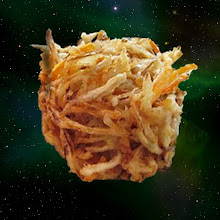One of the things that struck me the most about the introduction was the idea that mythology is one important way in which we can learn about ancient Scandinavian culture, and by extension, Germanic and Indo-European culture. The methods of interpretation have evolved, from Snorri in the thirteenth century, who only had access to the Icelandic source material and the viewpoint he adopted that the gods were originally humans who became deified over time in the myths, through more recent scholars who looked for explanations in natural phenomena, to the current prevailing view, which seems to be a combination of the two. As time goes on, our understanding has become more sophisticated and more source material has been unearthed, translated, and analyzed, but still there is a kind of vanishing point beyond which the reconstruction of history depends mostly on educated guesses and linguistics.
It makes perfect sense to me that the reason we want to study the myths and sagas is the same reason the Icelanders kept the ancient myths and poetry alive: "It is possible that the continued transmission of poetry about early kings and battles as historical sources required a continuing knowledge of heroic legend and of myth, not as the object of belief or as something associated with cult but simply as stories that people interested in the history of their own culture had to know (p. 17)."
I thought it was strange that the gods can be killed, specifically, Thor and Frey. I think it makes the gods seem a lot more human than I how I am used to thinking about them. But I wonder, why would people continue to worship a god who, according to myth, had died? Looking at the section on time cleared this up a bit. The major gods all die in the "near mythic future". So people who revered Thor maybe thought of themselves as participating in the mythic present, not that they had that exact terminology in mind.
I read about Loki. Apparently Loki makes quite a few appearances, and his role changes depending on what time frame the action is taking place in. He is not completely good or completely bad, and the book showed many instances that demonstrated Loki's inherent ambiguity.
Subscribe to:
Post Comments (Atom)




1 comment:
Excellent, thoughtful comments, Alexandra!
Post a Comment